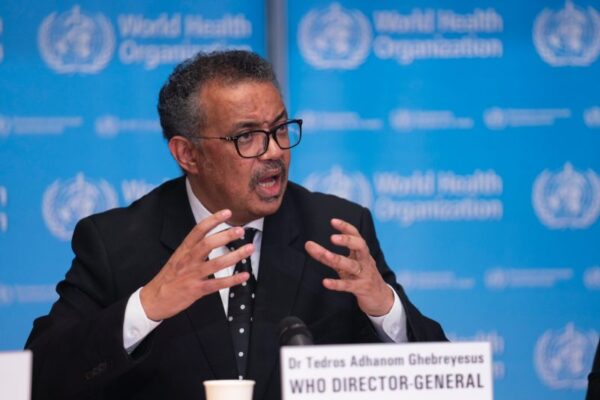The World Health Organisation (WHO) has declared that Mpox no longer represents an international health emergency, but warned that the virus still poses significant risks, particularly in Africa.
WHO Director General, Tedros Ghebreyesus, disclosed this on Friday at a media briefing, following recommendations from the organisation’s emergency committee.
According to Mr Ghebreyesus, the decision was informed by sustained reductions in infections and fatalities in countries that have been most affected by the outbreak, including the Democratic Republic of the Congo, Burundi, Sierra Leone and Uganda.
He explained that while the global threat level has reduced, the virus remains a public health challenge, especially in regions where health systems are weak and vaccination coverage is low.
“Yesterday, they met again and advised me that in their view, the situation no longer represents an international health emergency. I have accepted that advice,” he said.
According to him, authorities now have a better understanding of the drivers of transmission and risk factors for severity, while the most affected countries have developed a sustained response capacity.
Mpox
Mpox, also known as monkeypox, is a viral illness caused by the monkeypox virus, a member of the Orthopoxvirus genus.
The virus exists in two distinct clades: clade I (subclades Ia and Ib) and clade II (subclades IIa and IIb).
The 2022–2023 global outbreak was driven by the clade IIb strain.
The disease can be transmitted from animals to humans and also between people through close physical contact, including with lesions, body fluids, respiratory droplets, and contaminated materials such as bedding or clothing.
Symptoms typically include fever, headache, swollen lymph nodes, muscle aches and skin rashes.
While most cases are mild and resolve within a few weeks, severe illness can occur, especially among children, pregnant women, and people with weakened immune systems.
In August 2024, WHO declared the Mpox surge a Public Health Emergency of International Concern (PHEIC), its highest possible level of alert.
Risks not over
Mr Ghebreyesus stressed that the lifting of the emergency declaration does not mean the threat is over.
He drew attention to the Africa CDC’s position, stressing that the regional body still considers Mpox a continental emergency
“Of course, lifting the emergency declaration does not mean the threat is over, nor that our response will stop, and we note the Africa CDC’s decision yesterday that Mpox remains a continental emergency,” he said.
“The possibility of continued flare-ups and new outbreaks remains, requiring adequate surveillance and response capacity.”
He highlighted that young children and people living with HIV remain the most vulnerable groups, adding that ongoing efforts are needed to protect them.
Vaccines and ongoing response
Mr Ghebreyesus explained that the UN body, Africa CDC, and other partners have sustained a coordinated response to help countries reduce transmission, combat stigma, and expand access to testing, treatment, and vaccines.
“Nearly six million vaccines have been pledged, more than three million doses have been delivered to 12 countries, and just under one million doses have been administered,” he said.
Despite this progress, he warned that significant challenges persist.
These include the continued circulation of Mpox clades, surveillance and diagnostics, limited funding for response efforts, and the need for sustained investment in community engagement and local partner coordination.
READ ALSO: Ebola: Health workers affected as fresh outbreak claims 15 lives in DR Congo
Next steps
To support countries, WHO has extended standing recommendations for Mpox until August 2026 and prolonged the Emergency Use Listing for vaccines and diagnostics.
Mr Ghebreyesus also commended Dimie Ogoina, Chair of the Emergency Committee and a professor at Niger Delta University in Nigeria, for his leadership over the past year and his ongoing commitment to the fight against Mpox in Africa.











